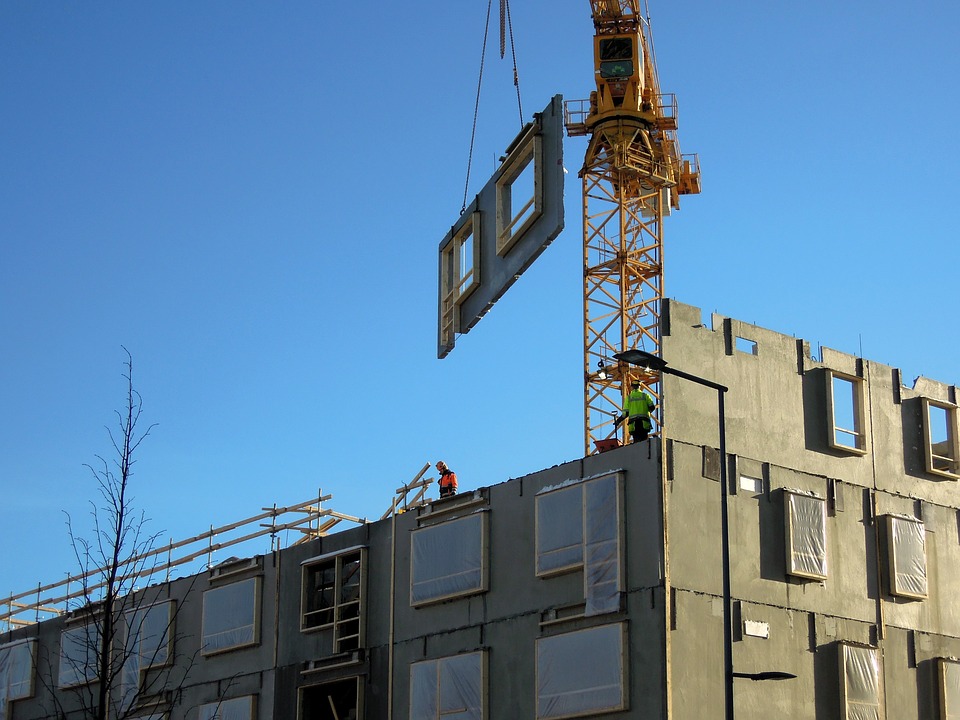Building Regulations in the UK
At M. Teevan, we know that our customers, from first time renters to long-time clients, want to see their work reach the highest possible standards of quality. This is both out of passion for what they do and to make sure they are providing the required levels of health and safety needed when the project is complete and ready for use. That is why it is important to be aware of all building regulations, updates and legal requirements before you start a new, large scale project.

As experts in plant hire, tool hire and construction, we are uniquely qualified to give our customers advice on what they should know before hiring from us and beginning their project. This will cover what building regulations are, how they work and when they will apply to what you are building.
If you also require advice about plant hire insurance, plant health and safety or safety with hand and power tools, please see our posts on these topics.
For more information about the plant or tools we can bring to your building work, please get in touch with us today. Our staff will be happy to help you make the best decision for your project.
What are Building Regulations?
They are the minimum of what is expected in standards for the design and construction of most, if not all, buildings in the UK. These levels are also expected to be maintained if you renovate a building, add an extension or carry out any other alterations. Regulations are developed by the government and approved by Parliament before being put into legislation.
These regulations have been put in place to make sure that any buildings, conversions, extensions or work carried out on a residential or commercial property will be safe and perform as expected. The government has also split building regulations into parts. These parts go into great detail to cover specific topics and scenarios, ensuring each area of the building work will help to maintain standards across the board.

Areas covered by the regulations include:
- Fire protection
- Structural integrity
- Accessibility
- Protection against falls
- Energy performance
- Acoustic performance
- Gas safety
- Electrical safety
- Standards for drains, waste disposal and ventilation
- Sanitation
- Workmanship
- Building materials
- Water and weatherproofing
- Security
- High speed broadband infrastructure
Local authorities have a responsibility to ensure building regulations are enforced. If someone carrying out work contravenes them, they can be prosecuted in the Magistrate’s Court, potentially resulting in an unlimited fine. Prosecution is possible up to two years after the work has been completed, and will be taken out against the person carrying out the project (the builder, installer or contractor).
Alternatively (or in addition), a local authority may also serve an enforcement notice, requiring the removal of the work which did not comply with the building regulations in place. If the person carrying out the project, the owner or the contractor does not respect this notice, then the local authority has the power to take control of the project and undertake the work instead. They are also able to recover the costs of carrying out the task from the owner. However, it is also possible for you to appeal against their decision, if you believe your work does comply with regulations.
When Did Building Regulations Come into Force?

The first set of national standards were brought in with the Building Regulations 1965, followed by fundamental changes made in the Building Act 1984. The latter introduced these changes in order to make the standards more flexible, to support innovation and to make the system more efficient and effective.
There have been further changes to the legislation since, in order to improve the quality of new buildings, the overall productivity of the system and to reduce pressure on those who use it.
When do I need Building Regulations Approved?
You must check if you need approval before you construct or change a building, from adding an extension to renovating a property. Building regulations are different from planning permission, and you may need both to carry out a project. Latest regulations cover the construction and improvement of buildings, but you may also need approval if you plan to:
- Replace windows or doors
- Install or replace a heating system
- Add more radiators to a heating system
- Put in a fixed air conditioning system
- Install a bathroom that will involve plumbing
- Change electrics near a bath or shower
- Replace fuse boxes and connected electrics
- Replace roof coverings on pitched or flat roofs
For more on building regulations as of 2019, you may wish to take a look at the government website.
How do Building Regulations Work?
When you carry out work on a project, you must give your local authority notice once you have reached a particular stage. It will then be able to explain the procedures you will be expected to follow from there, at various points in your project. When you reach these points, work should be halted so that your local authority can send approved inspectors to examine your site and the work being carried out. These inspectors can advise you if it appears that the project is not following building regulations.
If you do not give your local authority notice, it may send notice in writing that your site is required to be opened up for inspection.
How Long Does it Take to get Building Regulations Approved?

Your local authority should take about five weeks to make its decision over a full plans application (an application in which the full plans of your work are submitted for approval). However, this may be extended to two months by agreement. You must then give the building control body at least two working days’ notice before starting work.
Work carried out under a building notice application (a building inspector approves the work as it is undertaken) may start as soon as the notice has been accepted, which usually takes place within two days.
We can Offer Plant Hire and Tools for Your Building Work

We know you will want to ensure that your building work is following all stated regulations to the letter, in order to avoid costly fines, problems with health and safety and even potentially having to remove your work entirely. To help this, it is important that you have the proper tools, equipment and plant machinery to carry out the job. Using a broken tool, or using a piece of equipment for a purpose it is not designed for can compromise your building work, so everything you have must be used correctly and kept in good condition.
At M. Teevan, we can loan you the tools, plant and equipment you will need to get your job done. Our expert staff can help you find exactly what will work for the task that needs completing and we will make sure it is clean and in perfect working order before it ever reaches your site. This means you will not have to worry about it being suitable, when the time comes for you to use it.
Get in Touch
If you need to hire plant, tools or other pieces of equipment to get your building work carried out quickly, efficiently and to the standards expected, get in touch with us today. We can help you find what you are looking for, so you can start or carry on with your project in no time at all.
